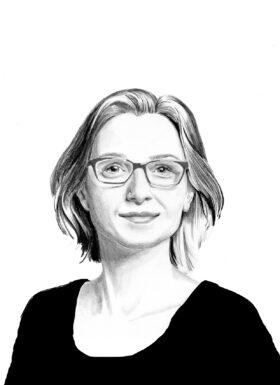-
Ammodo Science
Award for groundbreaking research2024 -
Ammodo Science Award
The Ammodo Science Award for groundbreaking research is intended to stimulate potentially groundbreaking research. Such research is usually the result of team work, and for that reason this Award is for research being carried out by a group of researchers working together, and is intended to recognise the contribution of every member of the group. The Award is presented every two years in four scientific domains: Biomedical Sciences, Humanities, Natural Sciences and Social Sciences.
-
Nomination & Selection
Each edition, the Ammodo Science Award for groundbreaking research includes a cash prize of 1,600,000 euros for each of the science domains Natural Sciences and Biomedical Sciences and a cash prize of 800,000 euros for each of the science domains Humanities and Social Sciences. The rectors of the fourteen Dutch universities affiliated to Universities of The Netherlands (UNL) may nominate a maximum of one research project per scientific domain.
-
Winners
The Ammodo Science Award for groundbreaking research focuses on potentially groundbreaking research and ensures that all researchers involved in the winning project are recognised and rewarded.
Lisa Herzog
Laureate Humanities 2021

Lisa Herzog (1983) studied Economics, Philosophy and Political Theory in Munich and Oxford and worked at the universities of St. Gallen, Frankfurt, Stanford and TU Munich. Since 2019, she has been Professor of Political Philosophy at the University of Groningen.
Herzog was a research fellow at the Wissenschaftskolleg zu Berlin and is a member of the Global Young Academy. In 2019 she received the Tractatus-Premie and the German Prize for Philosophy and Social Ethics. She has published widely on the philosophical dimensions of markets, liberalism, social justice, ethics in organisations and the future of work. Her latest widely discussed English-language monograph Reclaiming the System (2018) was published by Oxford University Press. The current focus of her work is on democratic organisations, professional ethics and the role of knowledge in democracies.
WebsiteResearch focus
Lisa Herzog investigates how moral and democratic norms can play a greater role in our economic system.
An interdisciplinary philosopher
Lisa Herzog was once told that philosophical issues and economic models could not be studied in combination, because the fields of study were too far apart. And indeed, during her studies of philosophy and economics, she had already noticed that what she learned in each could hardly be reconciled. This led to her deep-rooted mission to bring these two disciplines together.
Years have passed, and Herzog can rightly now be called an interdisciplinary philosopher. She works at the intersection of political philosophy and economics, within a new subdiscipline called Economic Philosophy. As a pioneering scholar, she combines insights from political philosophy and ethics with theories from economics and social sciences.
What does it mean to act morally when employees feel they are just small cogs on the wheel of a large organisation? And how should organisations be structured so that moral standards and values play a greater role in the actions of employees? Herzog examines such socially relevant questions, always viewing the economic system from a philosophical perspective.
Among other things, she has studied hierarchical structures and power relations in large organisations and shown how they can be harmful for our democratic society. Many existing economic models revolve around the assumption that people work in order to earn (as much) money as possible, while Herzog’s research shows that employees work just as well for other reasons, such as social contact and meaningfulness.
Herzog moves with great ease between history and current affairs, between economics, psychology and philosophy, and between pure research and its more practical application. Her research connects these different fields in an innovative way. Her impressive publications on the cutting edge of political philosophy and business ethics, including monographs published by Oxford University Press and her articles in various leading journals, make an original contribution in both a scientific and a social sense.
Herzog is currently working on a book in which she examines the relationship between knowledge and values, and between the market, democracy and information. What do citizens need to know to make democracies work? And what roles do markets and democratic institutions play in opening up knowledge for society, such as information about corona or climate change? Only when these kinds of politico-philosophical questions become a regular part of studies of our economic model, Herzog argues, will there be an opportunity for positive change.